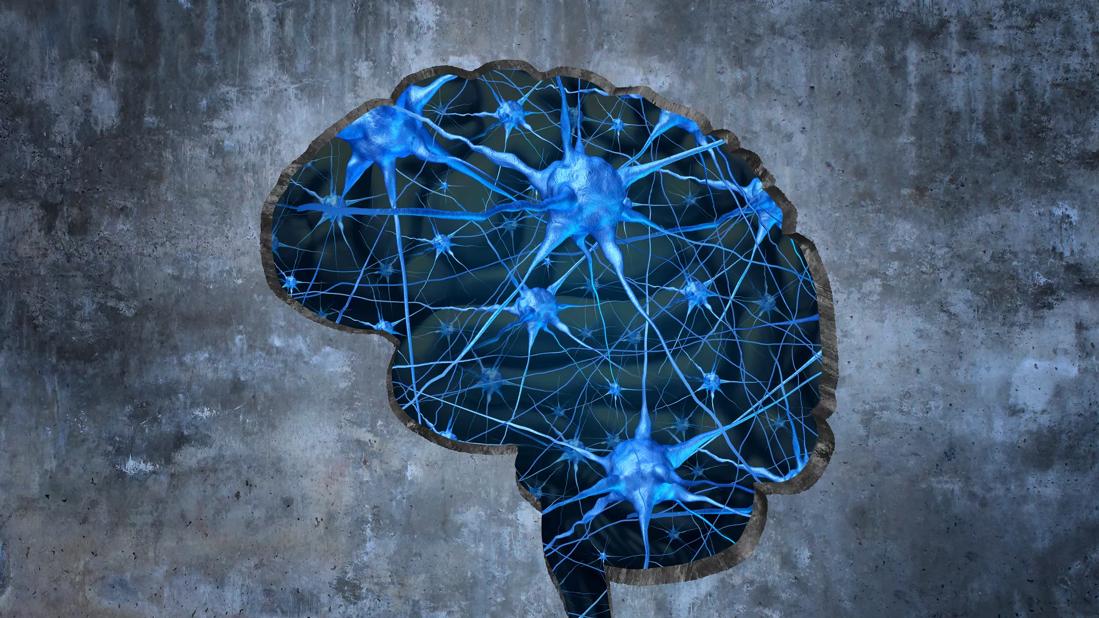Links are centered on neuroinflammation and microvascular injury, network medicine study finds

Image content: This image is available to view online.
View image online (https://assets.clevelandclinic.org/transform/3ca0fc5d-ab92-4ce4-823c-9405be768ae8/brain-dementia-jpg)
Alzheimers
A new Cleveland Clinic-led study has identified mechanisms by which COVID-19 can lead to Alzheimer’s disease (AD)-like dementia. The findings, which indicate an overlap between COVID-19 and brain changes common in AD, may help inform risk management and therapeutic strategies for COVID-19-associated cognitive impairment. The study was published in Alzheimer’s Research & Therapy.
Advertisement
Cleveland Clinic is a non-profit academic medical center. Advertising on our site helps support our mission. We do not endorse non-Cleveland Clinic products or services. Policy
Reports of neurological complications in COVID-19 patients and those with post-acute sequelae of SARS-CoV-2 infection (PASC) are becoming more common, suggesting that the SARS-CoV-2 virus may have lasting effects on brain function. However, it is not yet well understood how the virus leads to neurological issues.
“While some studies suggest that SARS-CoV-2 infects brain cells directly, others found no evidence of the virus in the brain,” says Feixiong Cheng, PhD, assistant staff in Cleveland Clinic’s Genomic Medicine Institute and the study’s corresponding author. “Identifying how COVID-19 and neurological problems are linked will be critical for developing effective preventive and therapeutic strategies to address the surge in neurocognitive impairment we expect to see in the near future.”
In the study, researchers harnessed artificial intelligence using existing datasets of patients with AD and COVID-19. They measured the proximity between SARS-CoV-2 host genes/proteins and those associated with several neurological diseases in which closer proximity suggests related or shared disease pathways. The researchers also analyzed the genetic factors that enabled SARS-CoV-2 to infect brain tissues and cells.
While the research team found little evidence that the virus targets the brain directly, they discovered close network relationships between the virus and genes/proteins associated with several neurological diseases, most notably AD, pointing to pathways by which COVID-19 could lead to AD-like dementia. To explore this further, they investigated potential associations between COVID-19 and two hallmarks of AD, neuroinflammation and brain microvascular injury.
Advertisement
“We discovered that SARS-CoV-2 infection significantly altered Alzheimer’s markers implicated in brain inflammation and that certain viral entry factors are highly expressed in cells in the blood-brain barrier,” Dr. Cheng notes. “These findings indicate that the virus may impact several genes or pathways involved in neuroinflammation and brain microvascular injury, which could lead to cognitive impairment like that observed in Alzheimer’s disease.”
The researchers also found that individuals with the allele APOE E4/E4, the leading genetic risk factor for AD, had decreased expression of antiviral defense genes, which could make these patients more susceptible to COVID-19.
“Ultimately, we hope to have paved the way for research that leads to testable and measurable biomarkers that can identify patients at the highest risk for neurological complications with COVID-19,” says Dr. Cheng.
He and the research team — which includes staff from Cleveland Clinic’s Neurological Institute, Lerner Research Institute and Genomic Medicine Institute — are now working to identify actionable biomarkers and new therapeutic targets for COVID-19-associated neurological issues in patients with PASC (“long COVID”) using advanced network medicine and artificial intelligence technologies.
The study was supported by the National Institute on Aging; the National Heart, Lung, and Blood Institute; the National Institute of Neurological Disorders and Stroke; and Cleveland Clinic’s VeloSano Pilot Program.
Advertisement
Advertisement
First full characterization of kidney microbiome unlocks potential to prevent kidney stones
Researchers identify potential path to retaining chemo sensitivity
Large-scale joint study links elevated TMAO blood levels and chronic kidney disease risk over time
Investigators are developing a deep learning model to predict health outcomes in ICUs.
Preclinical work promises large-scale data with minimal bias to inform development of clinical tests
Cleveland Clinic researchers pursue answers on basic science and clinical fronts
Study suggests sex-specific pathways show potential for sex-specific therapeutic approaches
Cleveland Clinic launches Quantum Innovation Catalyzer Program to help start-up companies access advanced research technology